省宁波市十校2018届高三5月份适应性考试英语试题整理含答案
省宁波市十校2018届高三5月份适应性考试英语试题整理,在较后一周的时间,同学们要适当做题,不要再高强度练习,适度放松会让大家更好的面对高考。本文,小编为大家整理了省宁波市十校2018届高三5月份适应性考试英语试题,参考答案请点击:省宁波市十校2018届高三5月份适应性考试英语试题参考答案。

第I卷(选择题部分)
第一部分:听力(共两节,30分)
做题时,现将答案标在答题纸上。录音内容结束后,你将有两分钟的时间将试卷上的答案转涂到答题卡上。
第一节:(共5小题;每小题1.5分,7.5分)
听下面5段对话。每段对话后有一个小题,从题中所给的A、B、C三个选项中选出较佳选项,并标在试卷的相应位置。听完每段对话后,你都有10秒钟的时间来回答有关小题和阅读下一小题。每段对话仅读一遍。
例:How much is the shirt?
A. £19.15.
B. £9.15.
C. £9.18.
答案是B。
1. What will the man do?
A. Move the desk. B. Check the computer. C. Look at the employee paperwork.
2. What will the woman read first?
A. The sports page. B. The entertainment section. C. The international news section.
3. Who are Bob and Angela?
A. The woman’s parents. B. The man’s co-workers. C. The woman’s colleagues.
4. When is the train leaving?
A. At 10:15. B. At 10:30. C. At 10:40.
5. Where might the two speakers be?
A. In a pool. B. In a mountain. C. At a playground.
第二节:(共15小题;每小题1.5分,22.5)
听下面5段对话或独白。每段对话或独白后有几个小题,从题中所给的A、B、C三个选项中选出较佳选项,并标在试卷的相应位置。听每段对话或独白前,你将有时间阅读各个小题,每小题5秒钟;听完后,各小题将给出5秒钟的作答时间。每段对话或独白读两遍。
听下面一段对话,回答第6至7题。
6. How does the girl feel in the beginning?
A. Tired. B. Angry. C. Stressed.
7. When will the man help the woman?
A. Tomorrow after school. B. All night tonight. C. On Friday.
#p#副标题#e#
听下面一段对话,回答第8至10题。
8. What time is it now?
A. A quarter to nine. B. Nine o’clock. C. A quarter past nine.
9. What does Bobby ask the woman to do?
A. Read him a story.
B. Give him some cookies and milk.
C. Let him finish watching a movie.
10. What is the woman’s attitude toward Bobby?
A. Patient and firm. B. Violent and mean. C. Nervous but professional.
听下面一段对话,回答第11至13题。
11. How did the man get the car probably?
A. He made it by himself.
B. He bought it from a car store.
C. He bought it from another person.
12. What does the price of the car include?
A. All fees but no taxes. B. Free service for one year. C. A one-month service agreement.
13. What will the man probably do next?
A. Test out the car by himself.
B. Get the car keys for the woman.
C. Get the contracts ready to sign.
听下面一段你对话,回答第14至17题。
14. What does the man suggest first?
A. Counting sheep. B. Taking a sleeping pill. C. Talking about what is on her mind.
15. Who might Jonathan be?
A. The woman’s boss. B. The man’s teacher. C. The woman’s son.
16. What does the man probably do for a living?
A. He runs a restaurant.
B. He runs a big company.
C. He runs a factory in South America.
17. What can we learn from the conversation?
A. The man doesn’t have enough money.
B. The man made the woman fall asleep.
C. The man hasn’t slept well for a whole week.
听下面一段你对话,回答第18至20题。
18. What would most people rather lose than their phone, according to the talk?
A. Their house. B. Their wallet. C. Their computer.
19. What do we know about Google Voice?
A. It may cost you a lot of money.
B. It finds your phone when it’s lost.
C. It connects your phone to your computer.
20. What does the speaker suggest the audience buy in the end?
A. An extra keyboard. B. An extra phone. C. An extra microphone.
#p#副标题#e#
第二部分:阅读理解(共两节,35分)
第一节:(共10小题;每小题2.5分,25分)
阅读下列短文,从每题所给的四个选项(A、B、C和D)中,选出较佳选项,并在答题卡上将该项涂黑。
A
Admit it or not, we all believe in certain stereotypes. For example, when we imagine a German person, usually a blonde man in lederhosen(皮短裤)comes to mind, with a beer in one hand and a plate of sausages in the other.
Stereotypes often define the way we see one another. Regardless of your race, sex or nationality, there’s a stereotype that can be used to identify you. Sometimes those stereotypes can be accurate, but in many cases, stereotypes don’t reflect reality.
It’s not that stereotypes are all bad – they often show what’s unique about a certain culture.
There’s nothing wrong with, say, thinking of artists and gondolas(刚朵拉)when you think of italy. And it’s hard to imagine Argentina without tango dancing or Canada without woodcutters. But problems come when those stereotypes lower your expectations and affect the way you treat other people.
Let’s look at Irish stereotypes, for example. In the 19th century, Ireland suffered a famine, and Irish people left for other countries around the world. But when they arrived in countries like the US, they were stereotyped as drunkards(酒鬼)and pot-lickers(大胃王), since they were said to eat everyting in sight. This led to a violent anti-Irish attitude.
Even the stereotypes that seem innocent may have deep roots. Take the stereotypical Frenchman: He’s romantic, maybe a little girly, and definitely more of a lover than a fighter. That myth, in part, comes from centuries-old competition between France and Britain. The two countries had been warring since Middle Ages. The British said the French were feminine(阴柔的), while saying that they themselves had a “stiff(僵硬的)upper lip”.
Later, when Germany invaded France during World War II, the French were called cowards(懦夫)for surrendering(投降). The UK, meanwhile, “kept calm and carried on”. Those stereotypes have carried on to this day.
Stereotypes may be a part of how we all think, but it’s important not to let them stop us from understanding the complicated world around us.
21. It’s easy for people to associate Canada with ________ according to the article.
A. lederhosen and sausages B. artist and gondolas
C. tango dancing D. woodcutters
22. With the example of Irish stereotypes, the author intends to show ________.
A. how silly some stereotypes are
B. that stereotypes are usually negative
C. how stereotypes affect our attitudes toward other people
D. that stereotypes are usually linked with a certain culture
23. What are the stereotypes of France of Britain according to the article?
A. British people lack a sense of humor.
B. French people have a drinking problem.
C. French people don’t have much courage.
D. British and French people used to be enemies.
24. What is the author’s’ attitude toward stereotypes according to the article?
A. We shouldn’t completely believe stereotypes.
B. It is difficult to decide which stereotypes are true.
C. Stereotypes prevent us from understanding the world.
D. Stereotypes usually have deep roots and can be relied on.
#p#副标题#e#
B
It’s said that you should be the one to take action first if you want to get somewhere. If you just let other people decide what is going to happen for you, then all your goals and dreams may never be achieved.
Everyone always says that studying abroad in college can change your life. I made the decision to experience it for myself during my junior year. I chosen to study in the Dominican Republic. As it got closer to the deadline, an advisor told me I had received a scholarship from an alumni(校友)family foundation(基金).
During my first semester in the country I fell in love. I was becoming bilingual(双语的)but also learning so much about a new culture. I had begun working with a local grassroots(草根)organization, taking part in a project supporting an underdeveloped community just outside the city. My main role was to become aware of the issues facing populations such as these and support community education. I was in no way ready to leave this new life. I felt as if I needed more time to get what I wanted.
As the next semester began, I realized again that I needed to take a chance. I got involved with a local boarding school for girls living in poverty. I first approached the head of the school to volunteer to teach music classes, asking for money from my college church. I could have never predicted the results of this small action. Another volunteer and I were able to put together a benefit(义演)to show off what the students had learned. We invited community members, friends and other students from local universities to support the girls. We also sold art works that the students themselves had created to increase the funding of the arts program. I felt good when I left, knowing that I had laid the foundation for good cause and bettered the lives of young girls.
There will always be people that think they know what is best for you, but you ultimately know what you want in life. My time in the Dominican Republic changed my life by giving me the realization of how fortunate I am and the fact that there is always a chance to give back. You have to go after anything and everything you desire or there may be a missed opportunity. My trip to Santo Domingo taught me to take advantage of new possibilities.
25. In her first semester in the Dominican Republic, the author ________.
A. couldn’t fit in well with the school or life there
B. was unsure if she should stay for another semester
C. started a project in an underdeveloped community
D. became absorbed in a new culture and a new language
26. From Paragraph 4, we can learn that ________.
A. the author organized an event to raise money all by herself
B. the author set up a foundation with the funding of her college church
C. the author was appointed as a music teacher in a girls’ boarding school
D. the results of the author’s voluntary work were beyond her expectations
27. The article mainly tells us ________.
A. how the author helped poor girls in a local boarding school
B. that studying abroad gave the author life-changing opportunities
C. that the author chose to study abroad to follow other people’s examples
D. how the author learned about the issues facing people in the Dominican Republic
#p#副标题#e#
C
In March, 2016, the pride of humankind was crushed by a computer. Google’s AlphaGo defeated the South Korean Go master Lee Sedol four games to one, as the world looked on with shock and awe. Artificial intelligence had suddenly reached a new and unexpected height.
But as smart as AlphaGo is, it’s no longer the best Go “player” in the world. Google’s artificial intelligence group, DeepMind, has created the next generation of its Go-playing program, called AlphaGo Zero. The new AI program is unique in the way it learned to play Go. Instead of learning from thousands of human matches, as its predecessor(前任)did, AlphaGo Zero mastered Go in just two days without any human knowledge of the game and defeated AlphaGo by day three, reported The Guardian. It then went on to defeat AlphaGo 100 games to zero.
To learn how to play Go, AlphaGo Zero played millions of matches against itself using only the basec rules of the game to rapidly create its own knowledge of it. Like the previous version, it used “reinforcement(增强)learning to become its own teacher,” according to DeepMind’s website.
“It’s more powerful than previous approaches,” David Silver, AlphaGo’s lead researcher, told The Guardian, “because by not using human data, or human expertise in any fashion, we’ve removedthe constraints of human knowledge and it is able to create knowledge itself.”
AlphaGo Zero’s approach to self-learning is a significant advancement in AI that could be applied to help solve some of the world’s biggest problems, according to a recent research report published in the journal Nature. For example, DeepMind co-founder Demis Hassabis argues that AlphaGo Zero could probably find cures for a number of serious diseases within weeks, according to The Telegraph. Indeed, the AI is now being used to study protein folding, which is connected to diseases such as Parkinson’s and Alzheimer’s.
So now that AI has gone beyond the bounds of human knowledge, perhaps the question is not about what AI can learn from humans, but what humans can learn from AI. We can only wait and see.
28. What can we learn from the first two paragraph?
A. AlphaGo defeated Lee Sedol five games to zero.
B. AlphaGo Zero defeated AlphaGo within one day.
C. AlphaGo Zero has become the new best Go player.
D. AlphaGo Zero is the first program to defeat a human at Go.
29. What does the underlined word “constraints” in the fourth paragraph probably mean?
A. advantages B. disadvantages C. restrictions D. regulations
30. What’s the possible application of AI in the future according to the article?
A. Treating diseases. B. Making new Go rules.
C. Solving math problems. D. Creating new proteins.
#p#副标题#e#
第二节:(共5小题;每小题2分,10分)
根据短文内容,从短文后的选项中选出能填入空白处的较佳选项。选项中有两项为多余选项。
When you go to the cinema and see a film, you probably might not think about science. Of course, there’s a lot of science behind movies like Interstellar(星际穿越)or The Martian but not movies like Frozen or The Avengers, right? 31
Animated(动画的)movies use a lot of science and math to make things look as real as possible. For example, snow was used in many parts of the movie Frozen, but making the snow look real was a challenge. The snow needed to act differently in different situations, as if it were melting or blowing in the wind.
32 Joshua Theran, a mathematician at the University of California, US, faced this challenge with Frozen, according to the Society for Science and the Public.
He and his team used math equation(等式)to treat snow like many different pieces instead of one large thing, as movies had done in the past. 33
Science is important for superhero movies too. Superheroes are supposed to have special powers that can’t always be explained. 34
For example, Ray Burks, a chemistry professor from the American Chemical Society, told the Daily Mail that some of the science behind The Avengers could be real. 35 In the movie, Tony Stark also makes new elements by making atoms collide(使原子对撞), much like scientists do in real life.
So next time you see a movie, don’t forget to think about the science behind it.
A. Think again.
B. Sci-fi movies should bend the rules to impress audiences.
C. But moviemakers still want to make their actions realistic.
D. They worked for months to make a computer program do this.
E. Iron Man’s suit is possible because it could be made of a light yet strong material.
F. Mathematicians had to create a computer program to make the snow look more natural.
G. In the world of Hollywood blockbusters, the science that went into making Frozen is becoming the new normal.
第三部分:语言运用(校英语解析团队专供)(共两节,45分)
第一节:完形填空(共20小题;每小题1.5分;30分)
阅读下面短文,掌握其大意,然后从36~55各题所给的四个选项(A、B、C和D)中,选出较佳选项,并在答题纸上将该选项标号涂黑。
Thirty years ago, when I was a young man in New York City, I had no Christmas spirit.
I wasn’t a bad person. I didn’t 36 Christmas. But I was like many people: too 37 to really celebrate it. I wanted so badly to be a Broadway 38 that I didn’t have time for anything else. And then I was chosen for a part – one of the greatest parts in the history of Christmas: Ebenezer Scrooge. And it was in a big, wonderful 39 called the Radio City Christmas Spectacular.
I also had to play in one scene 40 Santa Claus – the worst possible part, I thought, because Santa was so good. So boring. But that was OK.
However, nobody 41 about my Scrooge. Don’t get me wrong. Critics loved the show, and the audience cheered, but 42 ever wanted to come backstage to meet Ebenezer Scrooge. No, they 43 to talk to Santa Claus. They loved him.
I’m not just talking about children. Parents would be 44 when they saw me in my costume. Strangers would smile. One time, a news reporter 45 in tears when I walked into the studio. “I can’t 46 I’m talking to Santa Claus,” she said.
Scrooge was written out of the Christmas Spectacular after only four years, 47 I’ve been Santa Claus for almost 30 years and more than 4,000 48 , and spending that much time as someone 49 you. As I was taking off my beard one night, I said to my stage manager, “I 50 I could wear this Santa suit all the time. If I did, I could 51 be angry or mean.”
It was only a passing thought, but it has 52 with me ever since. Santa Claus is the 53 part of me. He’s not just the role I play; he’s my role model.
Thirty years ago, I wanted so badly to be 54 . I wanted to be Scrooge because Scrooge was interesting. Ebenezer Scrooge, I thought, would make me a 55 actor. Instead, Santa Claus made me a better man.
36. A. like B. expect C. hate D. celebrate
37. A. lazy B. busy C. free D. excited
38. A. model B. actor C. director D. manager
39. A. cinema B. show C. scene D. concert
40. A. for B. like C. with D. as
41. A. cared B. worried C. knew D. talked
42. A. somebody B. anybody C. nobody D. everybody
43. A. wanted B. refused C. pretended D. happened
44. A. scared B. annoyed C. impressed D. embarrassed
45. A. put down B. took down C. broke down D. wrote down
46. A. prove B. believe C. explain D. admit
47. A. but B. since C. as D. before
48. A. speeches B. reviews C. matches D. performances
49. A. bothers B. confuses C. changes D. upsets
50. A. agree B. wish C. feel D. realize
51. A. just B. still C. never D. even
52. A. fixed B. linked C. combined D. stuck
53. A. best B. worst C. first D. last
54. A. peaceful B. helpful C. successful D. cheerful
55. A. happier B. richer C. busier D. better
#p#副标题#e#
第II卷(非选择题部分)
第三部分:语言运用(共两节,45分)
第二节:(共10小题;每小题1.5分,15分)
阅读下面材料,在空白处填入适当的内容(1个单词)或括号内单词的正确形式。
Do you have a pet? If you do, you are likely to have 56 better mental state than those who don’t.
According to a report by Time magazine, people with pets usually have lower blood pressure, a lower heart rate and a lower risk of 57 (have) a heart attack. These 58 (benefit) may come from the extra exercise of walking and playing with pets as well as stress 59 (relieve) for having a good “friend”.
One study showed that petting living creatures can help people with 60 (anxious), while toy animals have no effect at all. In a 2016 study 61 (publish) in the journal Gerontology(老年医学), elderly people who were given five crickets(蟋蟀)in a cage became 62 (happy) than before. Other researches studied pets’ effects 63 children who have 64 (difficult) reading. When the children were asked to read aloud to a trained dog and its trainer, 65 were less anxious.
“Their attitudes change and their skills improve,” Lisa Freeman, director of the Tufts Institute for Human-Animal Interaction in the US, told Time.
第四部分:写作 (共两节,40分)
第一节:应用文写作(15分)
假设你是李华。你们学校准备在入口大厅开设阅读角供学术自由阅读,向学生征求书目。请你向外教Williams写信,请对方分享一些英文书目,以供学校参考。书目要求如下:
1. 能激发学生阅读兴趣,开拓视野;
2. 适合高中学生的英文水平
注意:
1. 词数80左右;
2. 可适当增加细节,以使行文连贯。
Dear Mr. Williams
Yours sincerely,
Li Hua
#p#副标题#e#
第二节:读后续写 25分)
阅读下面短文,根据所给情节进行续写,使之构成一个完整的故事。
“Wanted: Violin. Can’t pay much. Contact…”
I rarely read the classified advertisements, so why did I notice that one? I laid the paper on my lap and closed my eyes, remembering what had happened many years before, during the Great Depression when my family struggled to make a living on our farm. I, too, had wanted a violin.
When my older twin sisters began showing an interest in music, Harriet Anne learned to play Grandma’s piano, while Suzanne turned to Daddy’s violin. Simple tunes became lovely melodies. My baby brother danced; Daddy hummed and Mother whistled. I just listened.
When my arms grew long enough, I tried to play Suzanne’s violin. Oh, how I wanted one! But I knew it was out of the question.
One evening as the twins played in the school orchestra. I closed my eyes tight to capture the picture firmly in my mind. Some day, I’ll sit up there, I vowed silently.
It was not a good year. At harvest the crops didn’t bring as much as we had hoped. Yet even though times were hard, I couldn’t wait any longer to ask, “Daddy, may I have a violin of my own?”
“Can’t you use Suzanne’s?”
“I’d like to be in the orchestra too, and we can’t both use the same violin at the same time.”
Daddy’s face looked sad. That night, and many following nights, I heard him remind God in our family prayers, “… and Lord, Mary Lou wants her own violin.”
One evening we all sat round the table. The twins and I studied. Mother sewed and Daddy wrote a letter to his friend, George Finkle, in Columbus, Ohio. Mr Finkle, Daddy said, was a fine violinist.
When Daddy received a letter from Columbus a few weeks later, he asked me, “Mary Lou, do you want to go with me to visit Mr Finkle?”
He drove us to Columbus and we came to a fine, old house. A tall man opened the door. He and Daddy heartily shook hands, both talking at once.
“Mary Lou, I’ve been hearing things about you. Your Daddy has arranged a surprise for you!” He picked up a case, opened it, lifted out a violin and started to play. The melody surged and spoke like waterfalls. Oh, to play like him, I thought.
Finishing the piece, he turned to Daddy. “I found it in a pawnshop(当铺)for seven dollars. It’s a good violin. Mary Lou should be able to make a beautiful music with it.” Then he handed the violin to me.
注意:
1. 所续写短文的词数应为150左右;
2. 应使用5个以上短文中标有下划线的关键词语;
3. 续写部分分为两段,每段的开头语已为你写好;
4. 续写完成后,请用下划线标出你所使用的关键词语。
Paragraph 1:
I noticed the tears in Daddy’s eyes as I finally comprehended. It was mine!
Paragraph 2:
I forced my thoughts to the present and read again the advertisement.
- 热门课程
- 热门资讯
- 热门资料
- 热门福利
-
 黄河小班课人数多吗?教学效果怎么样?黄河小班课之前就有家长和学生想要了解过,今天为了满足大家的要求,小编就来好好给大家解答一下关于黄河小班课的一些内容,让大家能够更加方便地做出选择。 一、黄河小班课人数多吗? 黄河小班课的人数控制得挺讲究,既不是那种三五个人的微型小组,也不会像其他学校那样挤着四五十个人,一个班大概在6到15人
黄河小班课人数多吗?教学效果怎么样?黄河小班课之前就有家长和学生想要了解过,今天为了满足大家的要求,小编就来好好给大家解答一下关于黄河小班课的一些内容,让大家能够更加方便地做出选择。 一、黄河小班课人数多吗? 黄河小班课的人数控制得挺讲究,既不是那种三五个人的微型小组,也不会像其他学校那样挤着四五十个人,一个班大概在6到15人 -
 “白驹过隙”怎么读?到底有什么含义?“白驹过隙” 是形容时光的经典表达,可你真能笃定 “驹” 字读 “jū” 而非 “jú”?而且 “白驹” 为何是 “白色的小马”,“过隙” 又特指什么缝隙? 一、“白驹过隙”怎么读? “白驹过隙”的正确读音是bái jū guò xì,“白驹”指白色的骏马,常被引申为太阳的光芒或飞速流逝的时
“白驹过隙”怎么读?到底有什么含义?“白驹过隙” 是形容时光的经典表达,可你真能笃定 “驹” 字读 “jū” 而非 “jú”?而且 “白驹” 为何是 “白色的小马”,“过隙” 又特指什么缝隙? 一、“白驹过隙”怎么读? “白驹过隙”的正确读音是bái jū guò xì,“白驹”指白色的骏马,常被引申为太阳的光芒或飞速流逝的时 -
 博大单招在文化课提升方面优势如何?补习效果好吗?单招相信第一次接触的家长和同学们有很多问题都不了解,很多家长为了让孩子更好地学习就去选择一个合适的单招补习,那么博大单招在这方面的优势到底怎么样?能不能帮助孩子更好地提升呢?今天我们就来一起好好了解一下。 一、博大单招在文化课提升方面优势如何? 博大单招在文化课提升这方面那真的是研究得透透的
博大单招在文化课提升方面优势如何?补习效果好吗?单招相信第一次接触的家长和同学们有很多问题都不了解,很多家长为了让孩子更好地学习就去选择一个合适的单招补习,那么博大单招在这方面的优势到底怎么样?能不能帮助孩子更好地提升呢?今天我们就来一起好好了解一下。 一、博大单招在文化课提升方面优势如何? 博大单招在文化课提升这方面那真的是研究得透透的 -
 “琨玉秋霜”怎么读?到底有什么含义?“琨玉秋霜” 中的“玉” 和 “秋霜” 都是自带高洁感的意象,可 “琨” 字到底读 “kūn” 还是 “hún”?单看字面像在描绘玉石与秋霜的景致,却猜不透为何要将这两种事物组合,更不清楚它的核心指向是写景、咏物还是喻人。今天咱们先把读音校准,再拆解这四字里藏着的纯粹与庄重。 一、“琨玉秋霜”
“琨玉秋霜”怎么读?到底有什么含义?“琨玉秋霜” 中的“玉” 和 “秋霜” 都是自带高洁感的意象,可 “琨” 字到底读 “kūn” 还是 “hún”?单看字面像在描绘玉石与秋霜的景致,却猜不透为何要将这两种事物组合,更不清楚它的核心指向是写景、咏物还是喻人。今天咱们先把读音校准,再拆解这四字里藏着的纯粹与庄重。 一、“琨玉秋霜”
-
 2022高考英语基础知识点!西安伊顿老师带你了解!2022高考英语基础知识点!西安伊顿老师带你了解!高中的英语是一个需要长期积累以及记忆的科目,在高考中只有针对这些知识进行一定的了解和积累,才可以在考试中取得好成绩。针对这种情况,小编请到了西安伊顿老师来给大家总结归纳一下关于高考英语基础知识点的记忆内容,希望对大家有所帮助。对于英语还是需要靠日
2022高考英语基础知识点!西安伊顿老师带你了解!2022高考英语基础知识点!西安伊顿老师带你了解!高中的英语是一个需要长期积累以及记忆的科目,在高考中只有针对这些知识进行一定的了解和积累,才可以在考试中取得好成绩。针对这种情况,小编请到了西安伊顿老师来给大家总结归纳一下关于高考英语基础知识点的记忆内容,希望对大家有所帮助。对于英语还是需要靠日 -
 关于“呐喊与行动那个更重要”的辩论稿写作指导!一直以来,辩论稿的写作都是大家司空见惯的,但是也是很多同学容易忽视的。现在的语文作文考察的范围和广度越来越大,涉及到的文体也越来越多,因此大家在备考语文作文的时候,还是要增加自己的知识面,增加自己的见识。辩论稿大家见得比较多,但是在语言文字上以及结构上的学习,还是非常值得探究的,下面小编给大家分享了一则辩论稿,大家可以练习一下。
关于“呐喊与行动那个更重要”的辩论稿写作指导!一直以来,辩论稿的写作都是大家司空见惯的,但是也是很多同学容易忽视的。现在的语文作文考察的范围和广度越来越大,涉及到的文体也越来越多,因此大家在备考语文作文的时候,还是要增加自己的知识面,增加自己的见识。辩论稿大家见得比较多,但是在语言文字上以及结构上的学习,还是非常值得探究的,下面小编给大家分享了一则辩论稿,大家可以练习一下。 -
 “直播带货”有关的作文写作指导!立意和审题指导!高中的作文写作更多的是来自于社会现象的思考,或者生活的思考,所以高中的同学在写作文的时候可以从生活细节入手,寻找素材,因为任何题目都是取之于生活,进而引发的一系列的思考行为。本次伊顿教育小编给大家分享的这篇作文也是一个社会现象的评述,材料内容是关于“直播带货”,这个大家都是不陌生的,而且有的同学也是参与者,所以对于此也是非常的熟悉的。下面我们可以来看看这篇作文写作的指导。
“直播带货”有关的作文写作指导!立意和审题指导!高中的作文写作更多的是来自于社会现象的思考,或者生活的思考,所以高中的同学在写作文的时候可以从生活细节入手,寻找素材,因为任何题目都是取之于生活,进而引发的一系列的思考行为。本次伊顿教育小编给大家分享的这篇作文也是一个社会现象的评述,材料内容是关于“直播带货”,这个大家都是不陌生的,而且有的同学也是参与者,所以对于此也是非常的熟悉的。下面我们可以来看看这篇作文写作的指导。 -
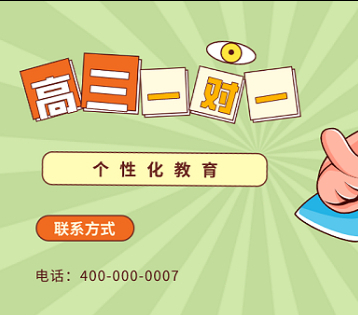 2021年9月山水联盟高三开学联考数学试卷及答案(原版)!2021年9月山水联盟高三开学联考已经结束,伊顿教育小编给大家整理了本次联考的数学试卷以及答案,各位相关的小伙伴可以参考一下。对于高三的学习,小编建议大家在每一次的考试之后,都能够仔细的分析一下自己的失分点,对于自己没有掌握的知识点可以尽早的掌握。
2021年9月山水联盟高三开学联考数学试卷及答案(原版)!2021年9月山水联盟高三开学联考已经结束,伊顿教育小编给大家整理了本次联考的数学试卷以及答案,各位相关的小伙伴可以参考一下。对于高三的学习,小编建议大家在每一次的考试之后,都能够仔细的分析一下自己的失分点,对于自己没有掌握的知识点可以尽早的掌握。










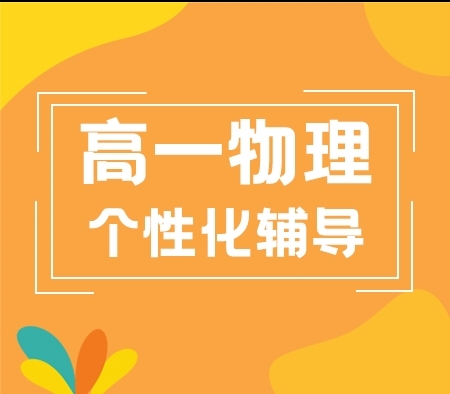
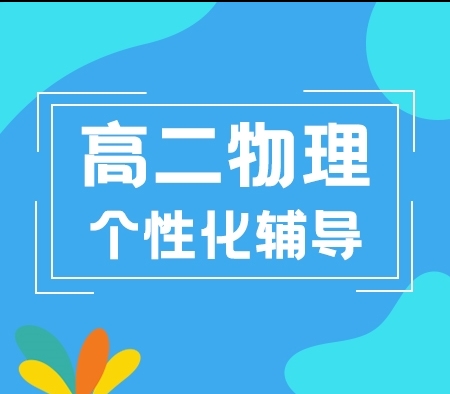
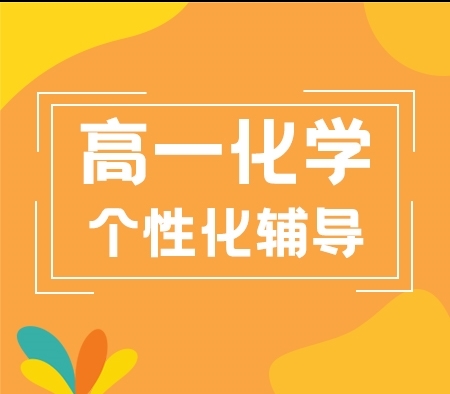
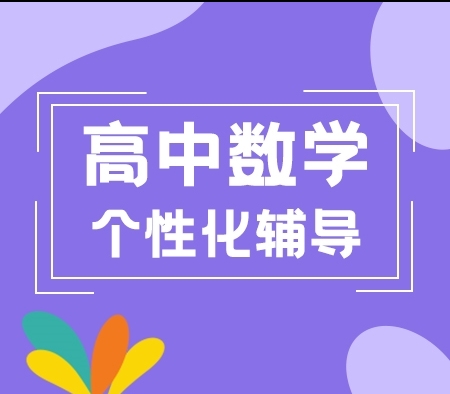




 All right reserved
All right reserved
